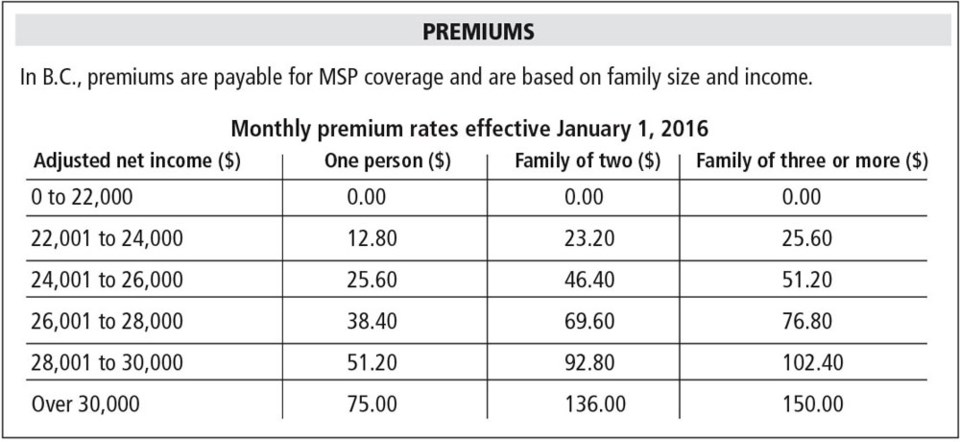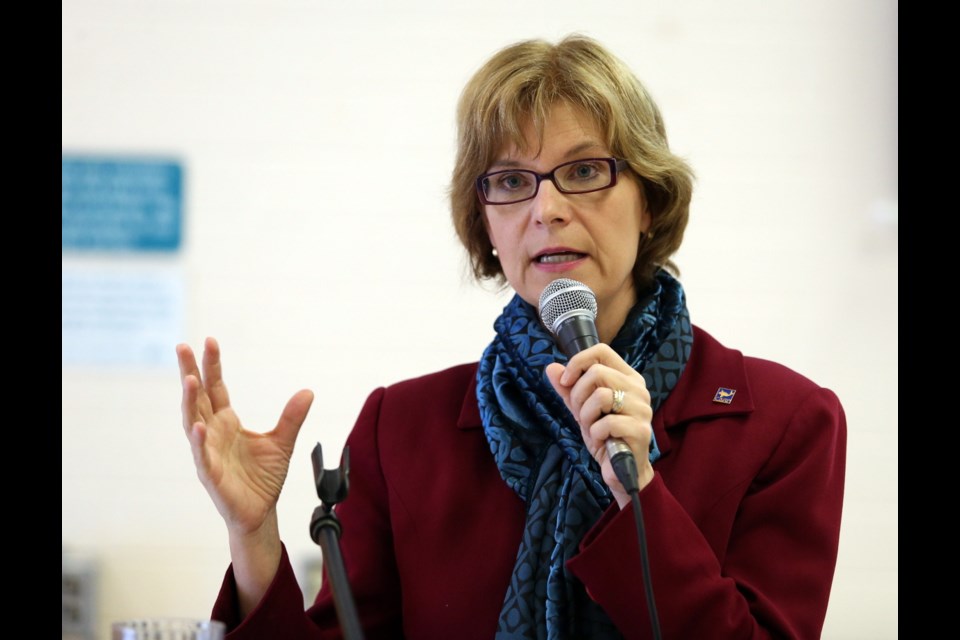Many low-income B.C. seniors are unaware that they qualify for assistance on Medical Services Plan payments, and B.C.’s independent seniors advocate says she is working with the province to ensure they find out about it.
Isobel Mackenzie said that a survey of those 65 and older shows most don’t know they may qualify for premium assistance. She also said the province does not notify them of subsidies available when they turn 65, when retirement means most lose workplace MSP coverage.
The good news is that seniors can receive refunds from the province for up to six years of MSP coverage paid when their incomes were below $30,000, the cutoff for assistance since 2010.
“We need to figure out a better way to link people who qualify with the benefits,” said Mackenzie, adding that 66 per cent of seniors pay full premiums when data indicate the number should be fewer than 50 per cent. A survey done for her office found that only 39 per cent knew that premium assistance is available.
B.C. has more than 820,000 seniors.
Their median income is $24,000 a year, yet almost 600,000 seniors are paying full premiums, Mackenzie said. Other than under-25s, seniors have the lowest median income of any age group. “They’re disproportionately hit the hardest on MSP premiums,” she said.
There is currently no organized way of notifying seniors of assistance available when their incomes drop at retirement, she said. “Often times, the province does think it’s telling people … but it is not as straightforward as it could be.”
A Ministry of Health spokeswoman said there is information on MSP assistance on its website and through monthly invoices sent to direct-pay residents each month, as well as over the phone. But the form makes no mention of the income threshold to qualify for assistance.
MSP premiums have more than doubled since the Liberals took office in 2001. Individual premiums rose to $900 this year from $432 per year in 2001, for those who make more than $30,000 a year. Premiums for two people rose to $1,632 from $768 in that time period. Senior couples don’t get a subsidy if their combined income totals more than $39,000.
About 40 per cent of B.C. residents pay their own premiums; the rest are covered by employers. B.C. is the only province charging health premiums. All other provinces have rolled coverage into the income-tax system, with payments based on the ability to pay, Mackenzie said.
The threshold for subsidy has remained unchanged since 2010, said Mackenzie, who argues that to keep up with inflation, the threshold should rise to at least $32,500.
As of June 2015, MSP premium assistance was provided to 17 per cent of the population, including about 800,000 people who are exempt from payments because their annual incomes are under $22,000, the ministry says.
The Health Ministry spokeswoman noted that the average annual increase in health spending since 2002 has been 4.5 per cent, compared to the average annual premium increase of 2.6 per cent since 2002, after that year’s 50 per cent increase in MSP premiums.
To apply for premium assistance, go to www2.gov.bc.ca/gov/content/health/health-drug-coverage/msp or call 1-800-663-7100.




